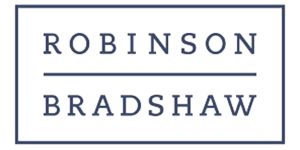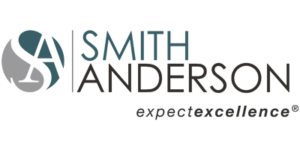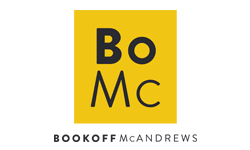Although lawyers are often responsible for advancing diversity, equity, and inclusion in organizations and at a national level, the legal industry as a whole remains one of the least diverse professions in the United States. According to the American Bar Association’s “2020 Profile of the Legal Profession,” it is overwhelmingly White and male.
Although many law firms have made public statements supporting diversity, equity, and inclusion (DEI), real progress has been slow. Now, more and more clients are losing patience and demanding diverse legal representation. In fact, large companies like Facebook, HP, and Novartis are pressuring the law firms they hire to improve racial and gender diversity.
“Clients are absolutely demanding action and not just words, when it comes to your DEI strategy. Clients are expecting measurable results,” says Angelique Vincent-Hamacher, Director at Robinson Bradshaw in Charlotte, N.C. “The days of just having some statement about your commitment to diversity, those days are over.”
In order to better serve clients, attract and retain talented attorneys, and foster outstanding workplaces, many law firms are leading the DEI charge. Among these innovative organizations are five law firms on the East Coast of the U.S. that are doing DEI right. Let’s take a closer look.
Robinson Bradshaw, Charlotte, North Carolina
Robinson Bradshaw, a firm of more than 150 lawyers, was given the Compass Award by the Leadership Council on Legal Diversity (LCLD) in November 2021. The award recognizes Robinson Bradshaw’s demonstrated efforts to build a more diverse firm and a more inclusive legal profession. Their emphasis on DEI is directly tied to the firm’s core values of teamwork, professionalism, and excellence.
“We are committed to trying to provide the best service that we can to our clients. And that means, if we’re trying to solve a client’s problem, we want to bring in a wide range of experiences and backgrounds to weigh in on any particular legal issue. We’re better together,” says Vincent-Hamacher, who is also Co-Chair of the 62-year-old firm’s Diversity, Equity, and Inclusion Committee.
Better service to clients is only one benefit. The firm’s DEI strategy also improves its ability to recruit and retain top talent. In 2021, Robinson Bradshaw established its Diversity Fellowship Program, which includes a $25,000 scholarship for first-year law students from underrepresented populations. The fellowship also includes a paid clerkship and enrichment activities. In the first year of the program, the firm took on two Diversity Fellows, and in 2022 there will be four. The hope is that these talented students will join the firm once they graduate from law school, Vincent-Hamacher says.
“We take a long view in terms of the folks we hire as first-year associates. We hire folks with the expectation that they’re going to stay, and hope that they’re going to stay at the firm for their entire career,” she says.
“It’s a real, personal and professional investment that we make in our lawyers because we fully expect that they’re going to be our partners.”
The firm’s affinity groups are another successful DEI effort at Robinson Bradshaw. The Women’s Initiative, Lawyers of Color Affinity Group, and RB-PRIDE affinity group provide mentorship, networking, and other types of support – both inside the firm and in the larger legal community. These groups work closely with Robinson Bradshaw’s other DEI initiatives to further the firm’s business and DEI goals.
Smith Anderson, Raleigh, North Carolina
Smith Anderson, with roughly 140 lawyers, is the largest firm headquartered in the Triangle and one of the largest law firms in North Carolina. Since it was founded in 1912, the firm has made building lasting relationships a central tenet of its business strategy. A robust DEI strategy has enabled Smith Anderson to achieve that goal: fostering relationships among its lawyers, its clients, and in the community at large.
The organization and its leadership have embraced diversity for decades, which isn’t common in the industry, says Kerry Shad, Partner and Co-Chair of Smith Anderson’s D&I Committee.
“I’m a gay woman, so I think it says a lot about Smith Anderson that I’ve been an elected member of firm leadership since 1999, which was the first year I was an equity partner,” she says. “That’s a long time.”
In 2021, Smith Anderson received the Diversity and Inclusion award from North Carolina Lawyers Weekly and South Carolina Lawyers Weekly. The Wake County Bar Association’s Diversity, Equity & Inclusion Committee also honored Smith Anderson last year with the inaugural Equity Champion Award.
In addition to the accolades, Smith Anderson’s DEI efforts have helped the firm attract new clients and retain existing ones. Shad says clients know that varied perspectives make legal teams more effective.
“The teams that we put together for different types of clients, different types of work, different projects – these folks are all very different from each other,” Shad says. “If you get all those different ways of looking at a problem or tackling an issue, the end result is just going to be better. That’s a huge plus, a huge plus.”
Smith Anderson also joined the 2021-2023 Midsize Law Firm class of the Mansfield Rule. To become Mansfield Certified, a firm must consider at least 30% underrepresented lawyers for 60% or more of its leadership roles. Firms are required to measure and track their efforts, and according to a company statement, the program will galvanize efforts to recruit, retain, and promote an even more diverse team of attorneys and staff.
Some of Smith Anderson’s other recent DEI measures include naming Taylor Dewberry as the firm’s first Chief Diversity Officer in 2021 and launching the Excellence in Diversity Fellowship for first-year law school students.
Beveridge & Diamond, Washington, D.C.
With more than 120 attorneys in seven offices, Beveridge & Diamond specializes in environmental law. Founded in 1974, the firm is among those highlighted by the Minority Corporate Counsel Association in its MCCA Diversity Scorecard, and it is ranked No. 22 on Vault’s 2022 survey for Best Midsize Law Firms for Diversity.
Not only is DEI a core value at Beveridge & Diamond, but diversity, equity, and inclusion is woven throughout everything the firm does, says Roy Prather III, Principal and former Chair of the Diversity, Equity and Inclusion Committee.
“Everything we do is driven by the people we serve or the people we work with. In order to be effective as a team and also as a service provider, you have to incorporate the knowledge, perspective, and skills of the entirety of the people who make up the firm,” he says.
The DEI committee is one reason for success at Beveridge & Diamond. Representatives from every level – lawyers, associates, principals, staff, paralegals, anyone who wants to participate – sit on the large committee. The group spearheads and carries out a number of diversity initiatives, plus it makes sure everyone has equitable access to opportunities for professional growth and choice assignments.
The firm tracks its DEI progress closely, surveying employees every eighteen months. Beveridge & Diamond is also Mansfield Certified and tracks those considered for leadership roles, ensuring that diverse candidates are in the running.
“It’s our bottom-line commitment to ensure that we’re really being thorough and following through, not just in recruiting but in those who we advance in our organization,” says Stacey Sublett Halliday, Principal and current Chair of the DE&I Committee. “That comprehensive approach makes me excited about what we do.”
The firm’s sincere and measurable DEI efforts have been good for recruitment and have built trust with employees, encouraging them to remain at the practice. “The firm has created an inclusive, equitable kind of environment for people to work in,” Prather says.
Halliday agrees: “A lot of firms toss around the phrase ‘collegiality,’ and I genuinely think that at B&D, we have made investments in each other that are so meaningful, that we get to see more authentic versions of ourselves.”
Bookoff McAndrews, Washington, D.C.
Established in 2012, Bookoff McAndrews has always seen diversity, equity and inclusion as foundational to its success. The firm, with roughly thirty-five lawyers on staff, specializes in patent counseling and prosecution and was ranked first on Vault’s 2022 survey for Best Midsize Law Firms for Diversity.
33% of Bookoff McAndrews attorneys are women, and 38% belong to racial or ethnic minority groups. Among the firm’s partners, 33% are women and 44% are from underrepresented groups.
“We’re very fortunate in that we have forward-thinking, open-minded, truly thoughtful founders who generated this firm, just ten years ago. And they had diversity in mind when they did so,” says Jessica Winchester, partner and leader of the firm’s culture initiatives.
“It forms the bedrock of what we do, and frankly, who we are. In many respects, our success has been derived from our commitment in the DEI space.”
Among the firm’s successful efforts is its IDEA committee, which adds the concept of awareness to DEI. The group meets monthly, preparing quarterly programming, newsletters, while also coordinating ongoing projects and initiatives throughout the firm.
“We have individuals from our staff, our attorneys, and our partners, every single role within our firm comprising this board. And every single person has a say; there is absolutely zero hierarchy. In fact, often the partners are there simply to champion the efforts and ideas that others bring forward,” Winchester says.
DEI awareness helps make conversations and team interactions more supportive, more understanding, and more pleasant, she says. The varied perspectives and talents enable the firm to better adapt to the shifting needs of clients and industry changes.
Those shifts include adapting to more remote work and hybrid schedules. As part of its regular DEI assessment process, Bookoff McAndrews is currently looking at ways to mitigate proximity bias among its employees.
“There have been studies, for instance, that have come out saying predominantly women in law firms will work remotely,” Winchester says. “We need to be mindful that out-of-sight, out-of-mind doesn’t become how we assign projects or exciting things within our organization.”
Carlton Fields, Miami, Florida
Founded in Tampa in 1901, Carlton Fields today has roughly 300 attorneys in 11 offices across the country. The firm has a strong national trial practice, as well as experience in myriad areas, including antitrust, business transactions, class actions, construction, employment, health care, insurance, litigation, and real estate. Appreciation of diversity is one of the firm’s core values, and the firm incorporates DEI throughout its work.
“Our firm has long been a leader in DEI, and it has contributed to our long-term success as a law firm, which celebrated its 120th anniversary last year,” says Nancy Faggianelli, Chief Diversity Officer and Shareholder at Carlton Fields, in a written statement.
The firm is among those highlighted by the Minority Corporate Counsel Association in its MCCA Diversity Scorecard, and it is ranked No. 13 on Vault’s 2022 survey for Best Law Firms for Diversity. It was also No. 4 on Law360’s 2020 Diversity Snapshot for Best Law Firms for Minority Equity Partners and in the top 30 for Best Law Firms for Minority Attorneys. The Carlton Fields board of directors includes four women and five additional diverse shareholders, and its CEO is Hispanic.
“We intentionally aspire to include diverse lawyers in every committee and leadership position within the firm, as well as sponsor participation and leadership in outside organizations,” Faggianelli says.
Carlton Fields has several affinity groups for women and diverse lawyers and their allies. It is a member of the Leadership Council for Legal Diversity, and it provides DEI training for the firm’s top managers. In their annual reviews, all shareholders must report their activities and success in mentoring younger lawyers and in promoting DEI.
But its success so far and the recognition it has received hasn’t made the Carlton Fields team complacent. Faggianelli says the firm constantly measures its DEI progress in recruiting, professional development, leadership, and many other areas.
“DEI is about being committed to continual improvement. We are constantly looking for, identifying, and assessing ways to improve our diversity, equity, and inclusion efforts,” she says.
In fact, each of these five law firms embrace this drive to improve DEI – no matter how big the organization is or where it is on its DEI journey. These law firms have settled on strategies and created policies that work for them. If you’d like help mapping your DEI journey, contact us today. The Diversity Movement can help create a customized plan that will enable your organization to do DEI right, too.
Amber Keister is a Content Writer and Editor at The Diversity Movement. She has spent more than 20 years as a journalist for publications throughout the South. Connect with her on Linkedin.











